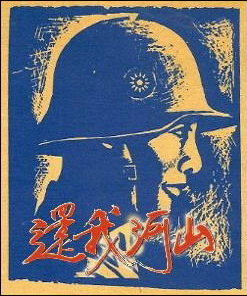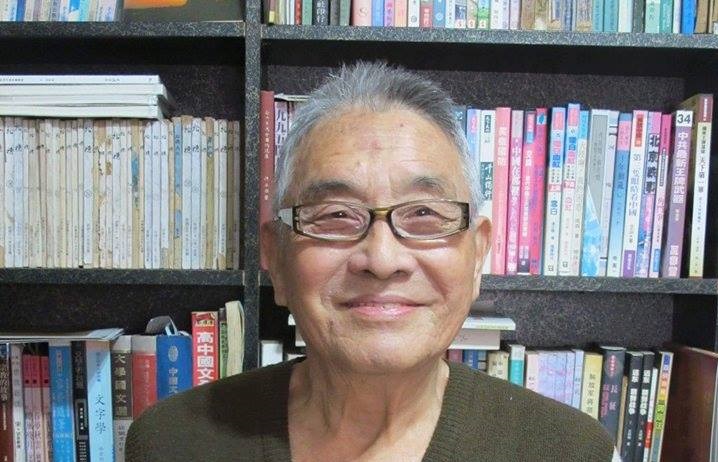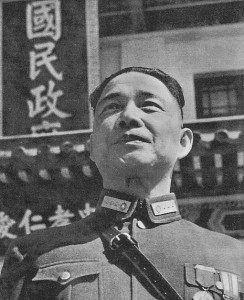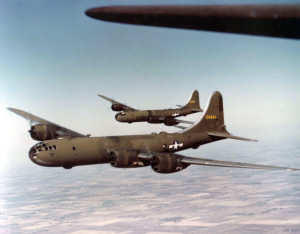A Chinese Child Soldier Speaks
- By Guest blogger
- 21 February, 2016
- 1 Comment
Huang Meng-hou, now 84 years old and a resident of Taiwan, served as a child soldier in the army of the collaborationist government headed by Wang Jingwei (or Wang Ching-wei). In his fascinating recollections, recorded by Samuel Hui (劍虹許), he explains how the war was characterized by many shades of gray. Although nominally fighting for Wang Jingwei, the soldiers saw themselves as serving the same cause as Chiang Kai-shek in Chongqing (Chungking), at least the way Huang describes it. Huang also gives testimony of how he experienced the US bombing raid on Hankow (part of the larger Wuhan tri-city area) in December 1944, previously described in other articles on this website.
“I was born on October 5, 1931 in the Japanese concession within the city of Hankow in Hebei province. My father was a follower of Sun Yat-sen during the revolution against the Qing Dynasty. That was the reason why he had many Japanese friends. With the help of those Japanese friends, my father was able to hide inside the Japanese concession when Yuan Shikai tried to arrest him.”
“After the outbreak of the Second Sino-Japanese War, the Japanese citizens were ordered to withdraw from the concession of Hankow. My family still lived inside the concession when the Russian volunteer pilots moved into it. Therefore, I had the opportunity to become friends with those Russian airmen who came to China to fight the Japanese invaders for us.”
“My father’s close relationship with many Japanese politicians, but he was still killed by the air-dropped plague-contaminated fleas created by Japan’s Unit 731 in Manchuria. After that, my mother and I moved out from the Japanese concession in Hankow and returned to our home village located in Mianyang county. While there, I was once mobilized by the local government to serve as a sentry.”
“In 1940, my cousin, Huang Chu-tsai was appointed the chief of staff of the 12th Division, 14th Army under Wang Ching-wei’s Collaborationist Chinese Army. My mom then convinced Huang Chu-tsai to let me serve under his unit as a child soldier because she was unable to earn enough money to provide for me. I then spent three years in the Collaborationist Chinese Army between 1941 and 1943.”
“During that period of time, our unit’s mission was to suppress the Communist insurgency led by the New Fourth Army in Hubei province. Usually, my cousin would give the New Fourth Army or any local Chinese bandits enough time to retreat or hide themselves away from the troops of the 12th Division. He simply believed that there was no reason for the Chinese to kill Chinese.”
“Also, my cousin’s unit worked closely with Tai Li’s Loyal Patriotic Army in rescuing downed American airmen of the 14th Air Force.”
“Neither Huang Chu-tsai nor I should be labeled with the term ‘traitor’ since we had done our best to prevent the Japanese from hurting or harassing the local Chinese people. It is very important to know that Wang Ching-wei’s regime keep the flag of ROC flying in occupied China.”
“We used to refer to the Chungking Army as the Fighting Army while referring to ourselves the Peaceful Army. From my point of view, the Peaceful Army was as patriotic as the Fighting Army since it followed the same ideological guideline of Dr. Sun Yat-sen’s Three People’s Principles as Chungking. The only difference between us and Chungking was that we focused more in promoting the Pan-Asianism.”
“In 1944, I was lucky enough to enter a local elementary school to continue my education. What I remembered about the bombing against Hankow by American B-29 bombers is that the American did drop the leaflet to warn us about the incoming raid. However, many Chinese refused to evacuate to the countryside because they feared that their house might be looted while they were absent.”
“One of my aunts was killed during the fire bombing raid taking place on Dec. 18 of 1944 for that particular reason. However, I don’t blame the American for bombing Hankow. I don’t think any Chinese actually hate American for doing that since too many of their compatriots had been killed already in the bombing raids committed by the Japanese.”






 Copyright © 2025
Copyright © 2025
Thank you for the article, very interesting perspective from someone that is from the Collaborationist army. Certainly for a lot of people in those turbulent times there was little choice on who to serve, especially for a 9-year old in occupied territory. Particularly interesting is how the common soldiers in the puppet army would view themselves as essentially being on the same side as the NRA, but perhaps more or less as a coping mechanism. Definitely not a good place to be…treading that fine line of serving the enemy and not wanting to harm your own people at the same time.